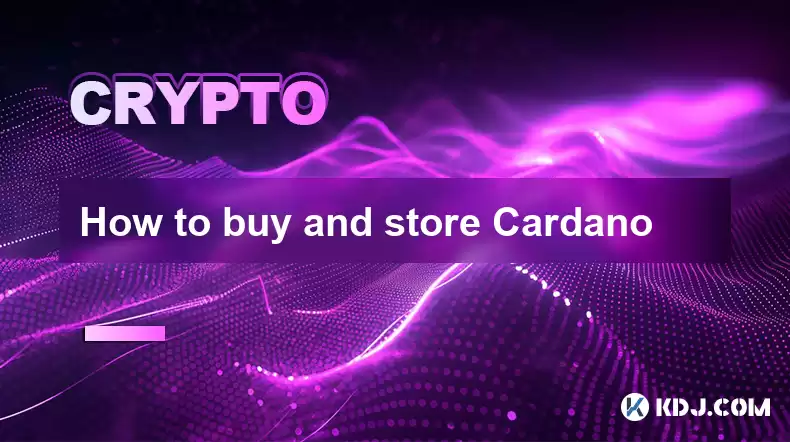-
 Bitcoin
Bitcoin $115100
1.27% -
 Ethereum
Ethereum $3675
2.71% -
 XRP
XRP $2.995
1.45% -
 Tether USDt
Tether USDt $1.000
0.02% -
 BNB
BNB $769.8
2.64% -
 Solana
Solana $168.0
3.25% -
 USDC
USDC $0.9999
-0.01% -
 TRON
TRON $0.3371
1.48% -
 Dogecoin
Dogecoin $0.2051
3.36% -
 Cardano
Cardano $0.7394
2.30% -
 Hyperliquid
Hyperliquid $38.15
0.42% -
 Stellar
Stellar $0.3966
-0.36% -
 Sui
Sui $3.486
2.93% -
 Chainlink
Chainlink $16.72
2.52% -
 Bitcoin Cash
Bitcoin Cash $568.0
4.36% -
 Hedera
Hedera $0.2440
2.59% -
 Ethena USDe
Ethena USDe $1.001
0.04% -
 Avalanche
Avalanche $22.16
2.06% -
 Litecoin
Litecoin $119.1
-0.73% -
 UNUS SED LEO
UNUS SED LEO $8.991
0.04% -
 Toncoin
Toncoin $3.232
-0.39% -
 Shiba Inu
Shiba Inu $0.00001233
2.82% -
 Uniswap
Uniswap $9.717
2.53% -
 Polkadot
Polkadot $3.664
1.85% -
 Dai
Dai $1.000
0.01% -
 Monero
Monero $281.2
-3.89% -
 Bitget Token
Bitget Token $4.350
1.55% -
 Cronos
Cronos $0.1428
5.07% -
 Pepe
Pepe $0.00001050
3.68% -
 Aave
Aave $262.3
3.54%
How to buy and store Cardano
Buy Cardano (ADA) on a secure exchange after researching fees and security. Fund your account, purchase ADA, and transfer it to a hardware wallet for safekeeping. Be mindful of transaction fees and practice strong security habits.
Mar 16, 2025 at 03:31 pm

Key Points:
- Choosing an Exchange: Selecting a reputable cryptocurrency exchange is crucial for buying Cardano (ADA). Consider factors like security, fees, and available trading pairs.
- Funding Your Account: Deposit funds into your chosen exchange using various methods like bank transfer, credit/debit card, or other cryptocurrencies.
- Buying ADA: Place an order to buy ADA on the exchange, specifying the amount you wish to purchase.
- Storing ADA Securely: Transferring ADA to a secure wallet is recommended for long-term holding. Hardware wallets offer the highest level of security.
- Understanding Fees: Be aware of trading fees charged by the exchange and network fees (transaction fees) associated with transferring ADA.
- Security Best Practices: Implement strong password practices, enable two-factor authentication (2FA), and be wary of phishing scams.
How to Buy and Store Cardano (ADA)
Buying and storing Cardano (ADA) involves several steps, each requiring careful consideration. The process begins with selecting a suitable cryptocurrency exchange. Many exchanges offer ADA trading pairs, but not all are created equal. Research is vital to find a platform with a strong security track record, low fees, and a user-friendly interface. Reputable exchanges often undergo rigorous security audits. Consider reading reviews and comparing fees before making a decision.
Once you've chosen an exchange, the next step is to fund your account. Most exchanges support various deposit methods, including bank transfers, credit/debit cards, and other cryptocurrencies. The specific options will vary depending on your location and the exchange's policies. Be aware of potential deposit fees, which can vary significantly between payment methods. Always verify the exchange's deposit address before sending funds to avoid irreversible loss.
After funding your account, you can finally buy ADA. The buying process is usually straightforward. You'll typically select ADA from the available cryptocurrency list, specify the amount you wish to purchase (either in ADA or your chosen fiat currency), and place an order. The order type (market order or limit order) determines how your purchase is executed. Market orders execute immediately at the current market price, while limit orders allow you to set a specific price at which you're willing to buy.
While holding ADA on an exchange offers convenience, it's not the most secure option. Exchanges are vulnerable to hacking and other security breaches. For long-term storage, it's strongly recommended to transfer your ADA to a secure wallet. Hardware wallets, such as Ledger and Trezor, are considered the gold standard for cryptocurrency security, offering offline storage and robust protection against malware and hacking attempts.
Software wallets, while more convenient, present a higher risk of compromise if not properly secured. Choose a reputable software wallet provider with a strong reputation and regularly updated security features. Remember to back up your wallet's seed phrase securely and never share it with anyone. Losing your seed phrase means losing access to your ADA.
Transaction fees, also known as network fees or gas fees, are incurred when transferring ADA between wallets or exchanges. These fees vary depending on network congestion. During periods of high network activity, fees can be significantly higher. Check the current network fees before initiating a transaction to avoid unexpected costs. Be aware of the different fee structures that exchanges and wallets might offer.
Understanding Security Best Practices
Security is paramount when dealing with cryptocurrencies. Always use strong, unique passwords for your exchange and wallet accounts. Avoid using the same password across multiple platforms. Enable two-factor authentication (2FA) wherever possible to add an extra layer of security. This usually involves receiving a code via email, SMS, or an authenticator app to verify your login attempts.
Be vigilant against phishing scams. Scammers often try to trick users into revealing their login credentials or seed phrases. Never click on suspicious links or respond to unsolicited emails or messages requesting your private information. Always verify the legitimacy of websites and emails before interacting with them. Regularly update your software and hardware to patch any security vulnerabilities.
Frequently Asked Questions (FAQs)
Q: Which exchange is best for buying Cardano?
A: There is no single "best" exchange. The ideal platform depends on your location, preferred payment methods, fees, and security preferences. Research multiple exchanges before choosing one. Consider factors like trading volume, user reviews, and security measures.
Q: Are there any fees involved in buying and storing Cardano?
A: Yes, there are fees. Exchanges charge trading fees on purchases and sales. Network fees are incurred when transferring ADA between wallets or exchanges. These fees vary based on network congestion and the chosen transaction speed.
Q: How secure are hardware wallets?
A: Hardware wallets are considered the most secure option for storing cryptocurrencies, offering offline storage and protection against malware and hacking attempts. However, even hardware wallets require careful handling and adherence to security best practices.
Q: What is a seed phrase, and why is it important?
A: A seed phrase is a series of words that acts as a backup key for your cryptocurrency wallet. It's crucial to keep your seed phrase secure and confidential, as it allows you to recover your funds if you lose access to your wallet. Never share it with anyone.
Q: What happens if I lose my seed phrase?
A: If you lose your seed phrase, you will likely lose access to the ADA stored in your wallet. There is no way to recover your funds without the seed phrase. Therefore, storing it securely is paramount.
Q: Can I buy Cardano with a credit card?
A: Many exchanges allow you to buy Cardano using credit cards, but be aware of potential higher fees compared to other payment methods. Also, some credit card companies may not allow cryptocurrency purchases.
Q: How long does it take to buy Cardano?
A: The time it takes to buy Cardano depends on the exchange and payment method used. Using a credit card might be faster than a bank transfer. Once the purchase is confirmed, transferring ADA to a wallet can take a few minutes to several hours depending on network congestion.
Q: What are the risks associated with buying and holding Cardano?
A: The cryptocurrency market is inherently volatile. The value of ADA can fluctuate significantly, leading to potential losses. Additionally, there are security risks associated with storing cryptocurrencies, such as hacking and theft. Thorough research and careful security practices are crucial to mitigate these risks.
Disclaimer:info@kdj.com
The information provided is not trading advice. kdj.com does not assume any responsibility for any investments made based on the information provided in this article. Cryptocurrencies are highly volatile and it is highly recommended that you invest with caution after thorough research!
If you believe that the content used on this website infringes your copyright, please contact us immediately (info@kdj.com) and we will delete it promptly.
- Avalanche vs. Ruvi AI: Daily Sales Tell a Story of Crypto Disruption
- 2025-08-07 06:29:35
- DeSoc: The Crypto to Buy Now for a Decentralized Future (and Maybe 43x Gains!)
- 2025-08-07 06:50:16
- Arctic Pablo Coin: Riding the Meme Coin Wave with a Deflationary Twist
- 2025-08-07 07:18:13
- XRP Price Skyrocket? Decoding the Cryptocurrency's Next Move
- 2025-08-07 07:31:50
- Meme Coins in August 2025: Riding the Rally Wave
- 2025-08-07 06:56:08
- Big Whales, Altcoins, and Heavy Transactions: What's Moving the Crypto Market?
- 2025-08-07 06:29:35
Related knowledge

What is Chainlink (LINK)?
Jul 22,2025 at 02:14am
Understanding Chainlink (LINK): The Decentralized Oracle NetworkChainlink is a decentralized oracle network designed to bridge the gap between blockch...

What is Avalanche (AVAX)?
Jul 22,2025 at 08:35am
What is Avalanche (AVAX)?Avalanche (AVAX) is a decentralized, open-source blockchain platform designed to support high-performance decentralized appli...

What is Polkadot (DOT)?
Jul 19,2025 at 06:35pm
Understanding the Basics of Polkadot (DOT)Polkadot (DOT) is a multi-chain network protocol designed to enable different blockchains to transfer messag...

What is Litecoin (LTC)?
Jul 23,2025 at 11:35am
Overview of Litecoin (LTC)Litecoin (LTC) is a peer-to-peer cryptocurrency that was created in 2011 by Charlie Lee, a former Google engineer. It is oft...

What is Monero (XMR)?
Jul 21,2025 at 10:07am
What is Monero (XMR)?Monero (XMR) is a decentralized cryptocurrency designed to provide enhanced privacy and anonymity for its users. Unlike Bitcoin a...

How to add indicators to Ethereum chart on TradingView?
Jul 19,2025 at 07:15am
What Is an Ethereum Chart on TradingView?The Ethereum chart on TradingView is a visual representation of the price movement of Ethereum (ETH) over a s...

What is Chainlink (LINK)?
Jul 22,2025 at 02:14am
Understanding Chainlink (LINK): The Decentralized Oracle NetworkChainlink is a decentralized oracle network designed to bridge the gap between blockch...

What is Avalanche (AVAX)?
Jul 22,2025 at 08:35am
What is Avalanche (AVAX)?Avalanche (AVAX) is a decentralized, open-source blockchain platform designed to support high-performance decentralized appli...

What is Polkadot (DOT)?
Jul 19,2025 at 06:35pm
Understanding the Basics of Polkadot (DOT)Polkadot (DOT) is a multi-chain network protocol designed to enable different blockchains to transfer messag...

What is Litecoin (LTC)?
Jul 23,2025 at 11:35am
Overview of Litecoin (LTC)Litecoin (LTC) is a peer-to-peer cryptocurrency that was created in 2011 by Charlie Lee, a former Google engineer. It is oft...

What is Monero (XMR)?
Jul 21,2025 at 10:07am
What is Monero (XMR)?Monero (XMR) is a decentralized cryptocurrency designed to provide enhanced privacy and anonymity for its users. Unlike Bitcoin a...

How to add indicators to Ethereum chart on TradingView?
Jul 19,2025 at 07:15am
What Is an Ethereum Chart on TradingView?The Ethereum chart on TradingView is a visual representation of the price movement of Ethereum (ETH) over a s...
See all articles

























































































